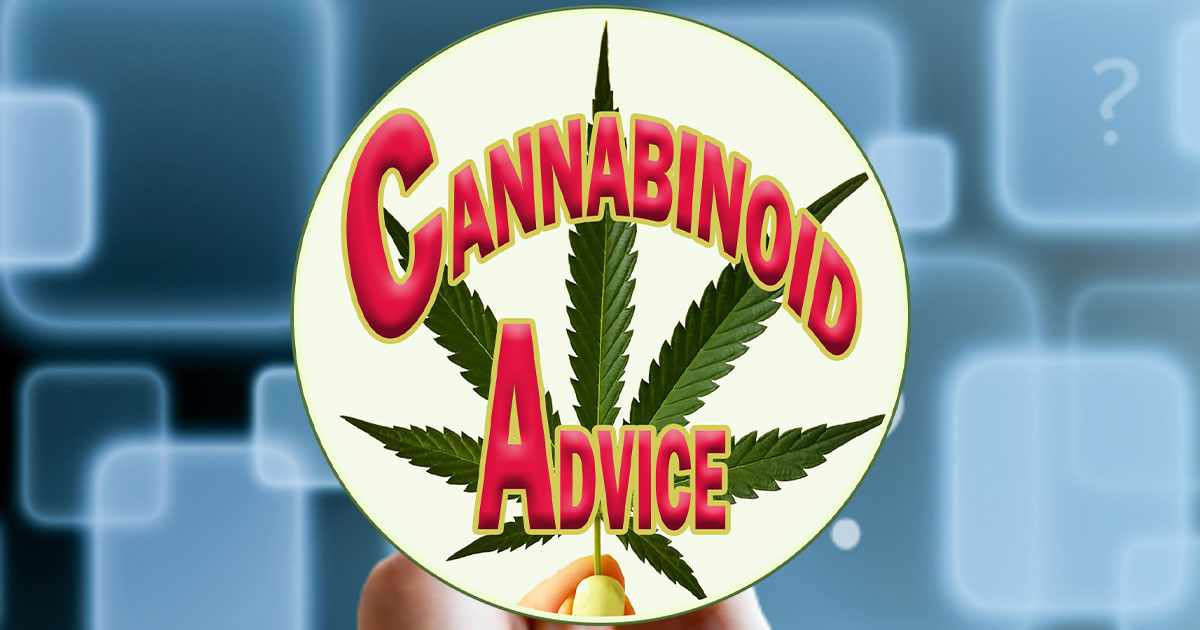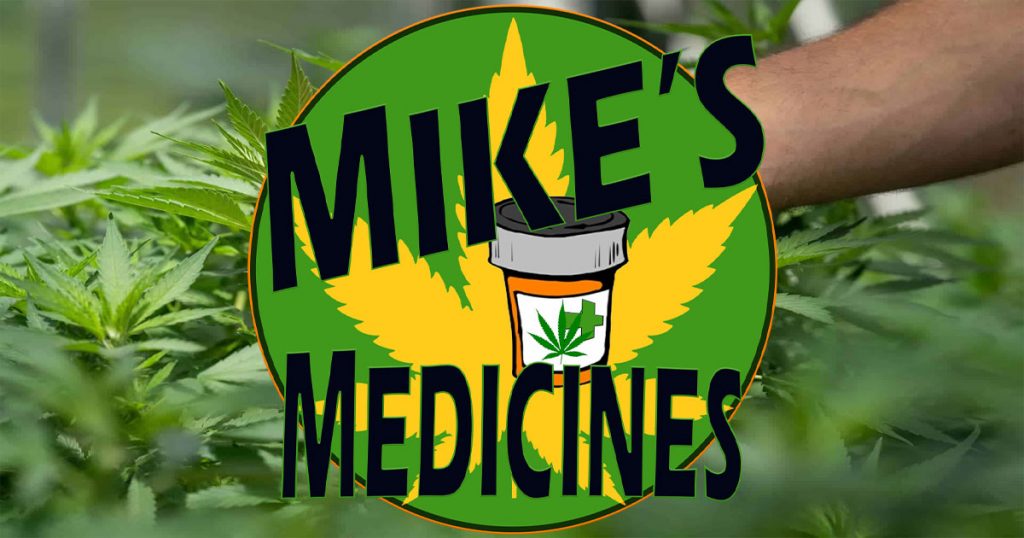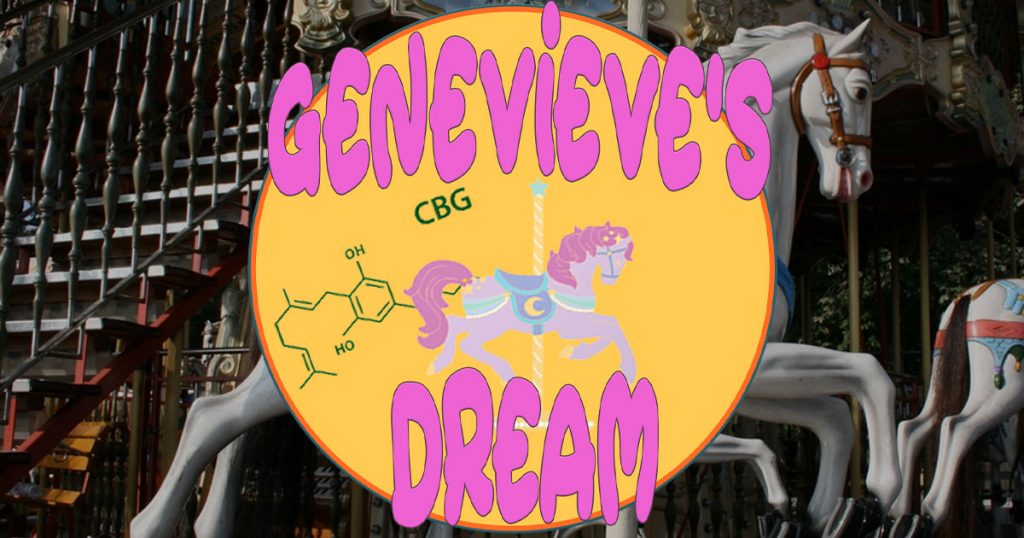Patients & Doctors - What You Both Should Know About Pharmaceuticals and CBD:
One of the first questions Cannabis Patients and CBD users ask me is “Should I tell my doctor?” The answer is always YES. There is a multitude of pharmaceutical drugs and health conditions that should be monitored closely with cannabinoid medicine – and some pharmaceuticals mixed with certain cannabinoids, namely CBD, can cause some notable interactions due to the body’s necessity for both to use the same enzymes and the same metabolic pathways. But what are those? A metabolic pathway is a linked series of chemical reactions occurring within a cell. The reactants, products, and intermediates of an enzymatic reaction are known as metabolites, which are modified by a sequence of chemical reactions catalyzed by enzymes. What does all that mean? CBD and many pharmaceuticals are metabolized by the same family of enzymes – one or the other won’t make it through that process without being hindered and it’s generally not CBD, it’s the pharmaceutical medication that ends up delivering at a higher rate than it should or not delivering at all in some cases. For those that want to quit their pharmaceuticals that could be a good thing but for the vast majority of medicinal patients, it’s something both we and our doctors should know.
There’s been a plethora of articles and studies about CBD inhibiting the metabolic pathway of pharmaceutical drugs, which is 100% correct in most doses we see suggested online and especially in the dosage suggestions of pharmaceutical CBD. As a patient with Epilepsy, I’ve experienced this scenario numerous times, and it’s dangerous. When a seizure medication (or any needed pharmaceutical) is eliminated by this chain of events, it opens a window to what we’re trying to avoid – seizures – 50,000 of us with Epilepsy die annually to them. There are ways to actually use this ‘contraindication’ to your advantage both as a ‘healer/doctor’ or as a patient when you understand how this all works. If you don’t understand and your doctor fails to be knowledgeable when you tell them about CBD use? The consequences not only can be dangerous – they have been for multitudes of patients. This is just one of the issues with this and easily anyone reading can see that CBD is not ‘free of side effects like we see in the vast number of memes created by people selling the cannabinoid that have little knowledge on how it works inside our bodies.
I think it’s important that people that use CBD speak out about this and educate others but not in a ‘reefer madness’ type of way. The anti-cannabis movement picks up quickly on anything negative about the plant, but that’s something we’ve learned to live with. We can’t hold back knowledge to satisfy those that want to continue to believe that everyone needs and can use all cannabinoids.

What you and your doctor should do when you tell them you're using CBD/Cannabis:
Doctors, please realize your own liability once you note the use of cannabinoid medicine in the file as you’re required to do. Immediately both patient and doctor must review all current pharmaceutical medications. If there’s a contraindication it’s not the patient that ends up with a medical board complaint or lawsuit, it’s the doctor. Any physician worth the paper their degree is printed on knows what a metabolic pathway is. I’ve spent likely over 100 hours educating my own doctor, and have refused payment from her, as the goal is patient education as most patients still listen to doctors. The scariest part about all of this is that many doctors are suddenly talking it up about CBD and even joining the industry via creating brands and more. Please don’t get offended if you’re in the healthcare industry, instead take some notes and learn. Your patient’s life depends on it.
If you manufacture, sell, or distribute CBD and don't know what I'm talking about in this article?
Please stop and learn as the ‘advice’ you give medicinal patients could easily cause more harm than good. Denial is always ugly, as well as the reactions to this knowledge, by those that are in it. Cannabinoid Medicine patients are not targets for those looking to make another buck in the industry – we’re legitimate users with a medical application. I’ve watched as people are attacked for spreading knowledge by those that would rather spread the hype. As much as I love Cannabis, I also have an open mind about what it can and can’t do. As much as it can stop a seizure for me it can also cause one (CBD). As much as it can relax me it can also cause my heart rate to speed up (THC). I don’t have a heart condition nor do I take any medication for it so that’s a nonissue, but I do have a severe epilepsy diagnosis and still take 2 medications that use the same metabolic pathway that CBD does.
So what are the issues in a nutshell?
Here’s some websites and studies that I suggest all that sell, distribute, or even make CBD products read and learn from. Patients? These are a must-read, please continue asking questions until you fully understand if you’re taking pharmaceuticals with CBD. If you have questions as a patient call a pharmacist that knows or talks to a cannabinoid medicine researcher that may help you identify what medications you take that don’t fit the type of cannabis you’re using – especially CBD. As patients and more, we’ve got to take the initiative and lead our own protocol to make sure that we’re medicating safely. Regardless of what you read keep in mind that much of this research is new – there’s so much more to be done. The best bet is to play it safe on dosing and keep it low – see how your body adjusts before moving to higher doses. If you’re using pharmaceuticals disclosing your cannabinoid use is a must to both your pharmacist and physician. Ask them both to check for contraindications. You’ve now done your part and it’s up to the healthcare industry to catch up and do theirs.
Be informed – don’t be fearful. Cannabinoid Medicine is known (and was patented by the US Government) for eradicating carcinogens from our bodies, many pharmaceuticals are known carcinogens. Read: https://www.mikesmedicines.com/medical-marijuana/prescription-medications-are-they-carcinogens/
Look at how long ago this data was available to professionals via published study:
“These major cannabinoids are known to be extensively metabolized by hepatic microsomal cytochrome P450 (CYP) (Huestis, 2005; Watanabe et al., 2007). Bornheim et al. and we previously demonstrated that the hepatic metabolism of Δ9 -THC, CBD, and CBN is predominantly catalyzed by CYP2C and CYP3A (Bornheim and Correia, 1991; Bornheim et al., 1992; Watanabe et al., 1995, 2007” As stated in “Potent inhibition of human cytochrome P450 3A isoforms by cannabidiol: role of phenolic hydroxyl groups in the resorcinol moiety” https://www.medicinalgenomics.com/wp-content/uploads/2013/11/Potent-inhibition-of-CYP3A-with-CBD.pdf
26 years ago - 1993:
Biochemical Pharmacology Volume 45, Issue 6, 24 March 1993, Pages 1323-1331 “Characterization of cannabidiol-mediated cytochrome P450 inactivation” ‘Cannabidiol (CBD) has been shown to impair hepatic drug metabolism in several animal species and to markedly inhibit mouse hepatic microsomal Δ1-tetrahydrocannabinol (THC) metabolism by inactivating specific cytochrome P450s (P450) belonging to the 2C and 3A subfamilies. Elucidation of the mechanism of CBD-mediated P450 inhibition would be clinically very important for predicting its effect on the metabolism of THC and the many other clinically important drugs known to be metabolized by P450s 2C and 3A.’
When your doctor tells you there’s not enough research – point them to some from the ’90s. There’s more than enough research to know that there are issues with CBD and multiple pharmaceuticals paired together and enough depth of that research for me to state there’s absolutely no excuse for the healthcare industry not knowing this information.
Interactions between cannabidiol and commonly used antiepileptic drugs (2017):
https://onlinelibrary.wiley.com/doi/full/10.1111/epi.13852 “To summarize, this study introduces potential pharmacokinetic interactions between CBD and other commonly used AEDs in the treatment of epilepsy. Because CBD continues to be studied as a potential anticonvulsant, clinicians and researchers alike should be aware of significant changes in serum levels of clobazam/desmethylclobazam, eslicarbazepine, rufinamide, topiramate, and zonisamide. In addition, although this is part of routine drug monitoring, liver function should be monitored closely in patients taking concomitant CBD and valproate” To those of us with Epilepsy or that have children fighting it, this information is crucial in determining what type of protocol to use.
Human Metabolites of Cannabidiol: A Review on Their Formation, Biological Activity, and Relevance in Therapy (2016):
“It has repeatedly been demonstrated that CBD is not only a substrate but also an inhibitor of CYP450 enzymes, and thus, it could interfere with the metabolism of other xenobiotics, including THC and medicinal products.”
- Identification of cytochrome P450 enzymes responsible for metabolism of cannabidiol by human liver microsomes (2011) https://www.researchgate.net/publication/51249274_Identification_of_cytochrome_P450_enzymes_responsible_for_metabolism_of_cannabidiol_by_human_liver_microsomes
- Cannabidiol Is a Potent Inhibitor of the Catalytic Activity of Cytochrome P450 2C19 (2013): https://www.sciencedirect.com/science/article/pii/S1347436715304225
- An Update on Safety and Side Effects of Cannabidiol: A Review of Clinical Data and Relevant Animal Studies: https://www.ncbi.nlm.nih.gov/pmc/articles/PMC5569602/
- Cannabinoids and Cytochrome P450 Interactions: https://www.ncbi.nlm.nih.gov/pubmed/26651971
- Project CBD: https://www.projectcbd.org/science/cannabis-pharmacology/cbd-drug-interactions-role-cytochrome-p450
Always medicate safely and try to gain your knowledge from reading from as many sources as you can. Online advice can seriously help a lot of people but if you’re gaining it from someone that’s selling you a product, although many have ethics, you’re opening the door to the possibility of not gaining all the information you may desire while only hearing about the positives. Of course, I’d rather stay on the positive side of things but we’re talking about people’s lives. Education is necessary and it’s best if it comes from a source that loves what the cannabinoid can do just as much as they exercise caution with it. Many of us loved what pharmaceuticals did and threw caution to the wind. I don’t want to see that happen with cannabinoid medicines.
-Mike Robinson, Cannabis Patient and Founder, Global Cannabinoid Research Center. But, most of all, Genevieve’s Daddy
Sign up to receive informative and exciting email updates from Mike's Medicines!
You can sign up for our mail list here:
Didn't find what you are looking for?
Find exactly what you want to when you want it.
Browse through our archives by date, category or by entering a topic in the provided search field.
Archives
Categories
More to come as we have time to add them – there’s 100’s of additional publications!

We’ve made it easy for you to read Mike’s Medicine Blog or visit any of the Menu items right from here. It is that simple! Explore Mikes Medicines by clicking on the button below:

Read about how Cannabis Compassion and love created Mike’s beautiful family, the Cannabis Love Story inspires millions daily:
Genevieve’s Dream is all about her love for the Carousel coupled with her Cannabinoid Medicine journey – read more and make contact if you’re interested in collaborating with Mike!
The Global Cannabinoid Research Center is a trusted source for education, R&D, and more – make contact with us to collaborate.






